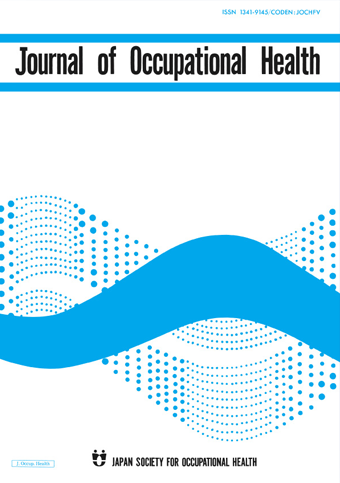A successful gradual smoking cessation project at an industrial site
The Furukawa Electric Corporation has taken assertive measures to discourage smoking on the premises. To achieve our smoking cessation goals during the 2005–2014 period, we launched a series of initiatives to prevent passive smoking, increase awareness of the harms of smoking and of opportunities to quit smoking, support workers who wished to quit smoking, and discourage the uptake or resumption of smoking among nonsmokers. A detailed description of our initiatives appears in a paper published in Environmental and Occupational Health Practice.
Between 2005 and 2007, we reduced the number of designated smoking areas by 30%, removed tobacco products from vending machines, had occupational health professionals give seminars about smoking, and offered consultations to individuals who needed help to quit smoking. Between 2008 and 2012, we gradually moved towards the discontinuation of all tobacco sales on the premises and a prohibition on smoking during working hours. We also had designated days with 24-hour smoking bans. Beginning in 2013, we began preparations for having a complete smoking ban in force throughout the premises by 2020.
Analyses of smoking rates over time at our facility confirmed the effectiveness of our antismoking initiatives. The smoking rate for male employees decreased from 53.4% in 2003 to 24.1% in 2014, and the percentage of our male employees who smoked declined by 6.1% per year on average between 2005 and 2012. This rate of decline in smoking was much greater than the 2.7% annual rate recorded for Japanese men in general over the same period. This outcome confirms the value of gradual and sustained initiatives aimed at smoking cessation.
In conclusion, our work shows that employers can promote smoking cessation among their workers by persistently working to raise awareness of the dangers of smoking, providing support to workers who wish to quit smoking, and discouraging the initiation or resumption of smoking. The successful implementation of such initiatives requires strong relationships between workers and management and a commitment to the initiatives on the part of management, but the reduction in smoking-related morbidity and mortality more than justifies the effort.
Link to the original journal article:
https://doi.org/10.1539/eohp.2020-GPS02
Continued smoking cessation measures to achieve the prohibition of smoking on the entire premises of a large-scale manufacturing site
Takeshi Kochi and Hiroko Tsuruoka
Here are some ways you can make it easier for your plain-language summary to be discovered once it has been published:
- Upload the summary on your personal, lab/research group, or university website.
- Share the published content with peers and colleagues through your personal social media accounts (Facebook, Twitter, Blogs, and LinkedIn). Link this back to the journal’s social media promotions for your paper.
- Include the link to the published post in your email signature line.
News & Announcement
-
Mar 14, 2025EOH-P has been listed on PMC/PubMed!The articles published in EOH-P have been registered with PMC/PubMed, the U.S. Nation...
-
Jun 11, 2021Lay Summary page open!Lay Summary page provides you article summaries in order of study categories. You can...
-
Oct 1, 2019EOH-P is now released!The Environmental and Occupational Health Practice (EOH-P) has been released. Please ...
Journal Info
Average 46.14 days from submission to first decision
Average 120.95 days from submission to acceptance







